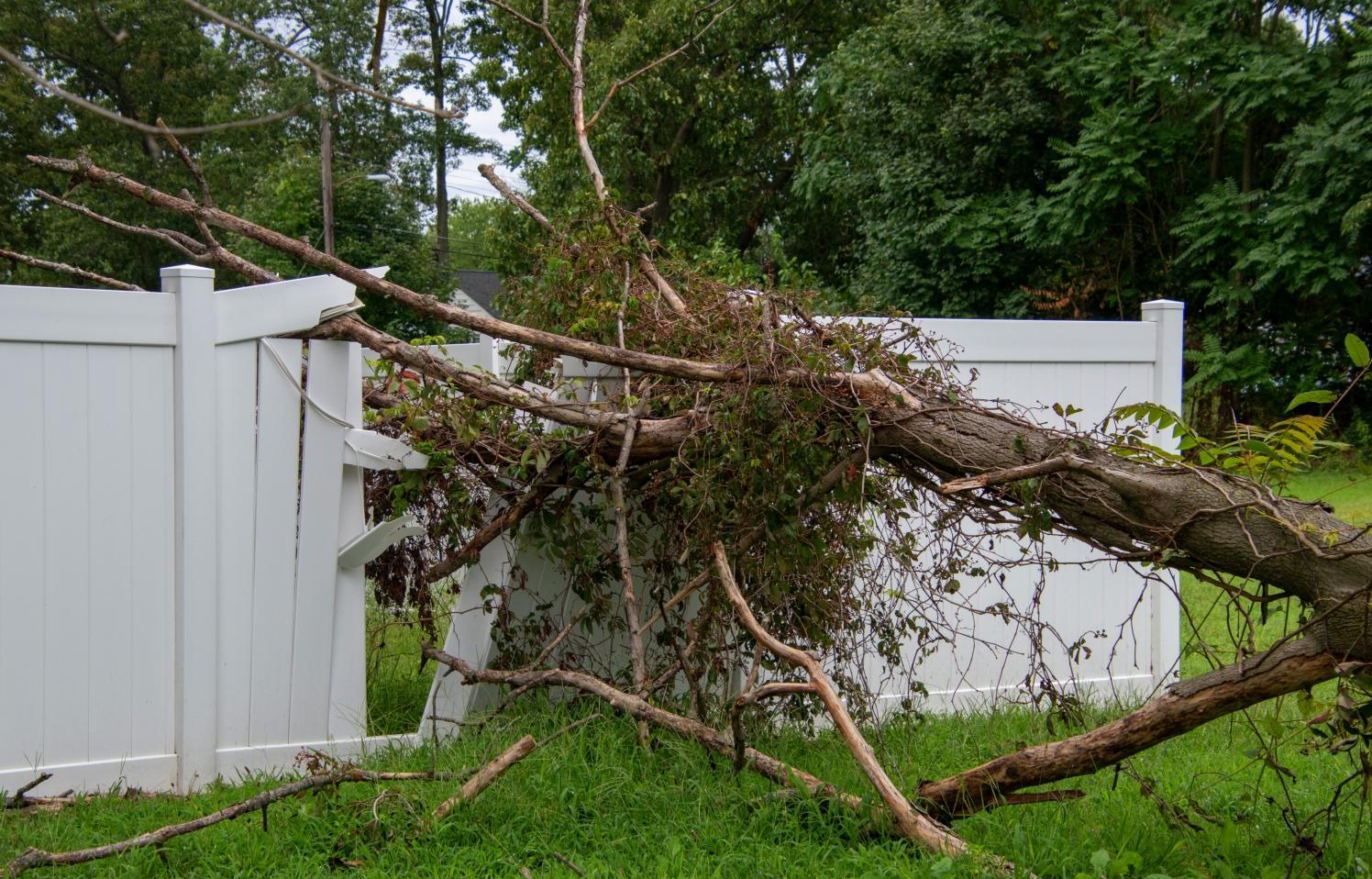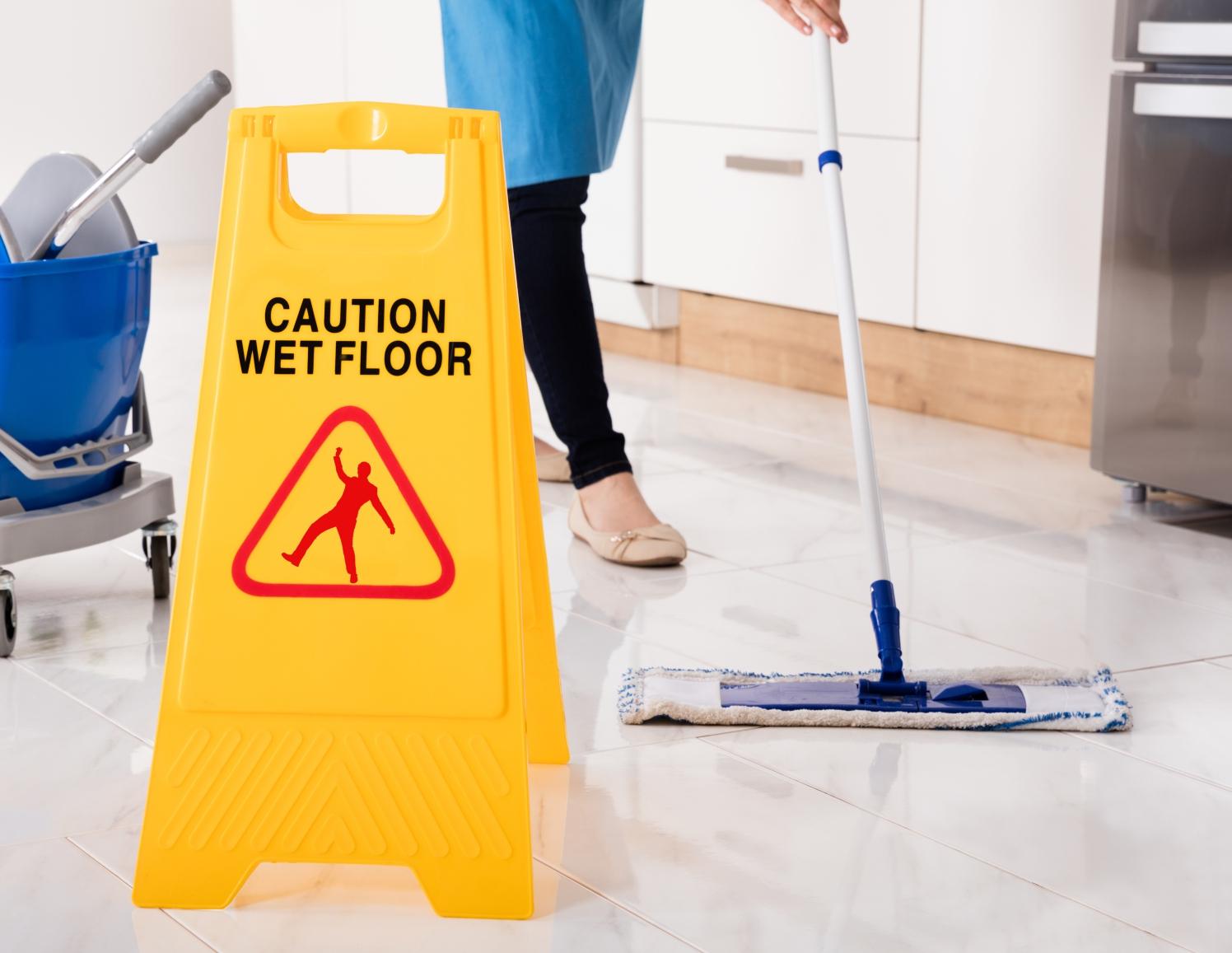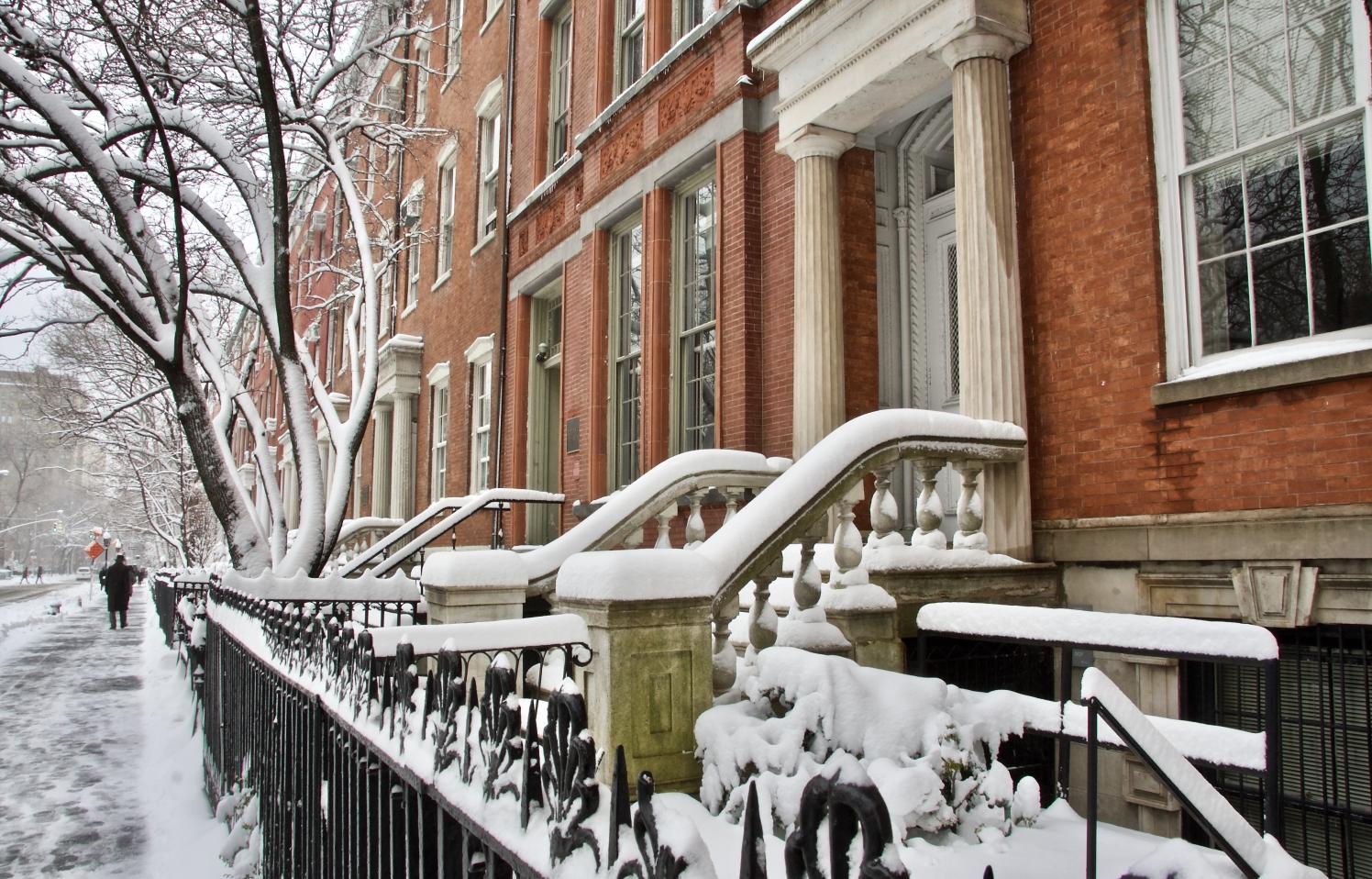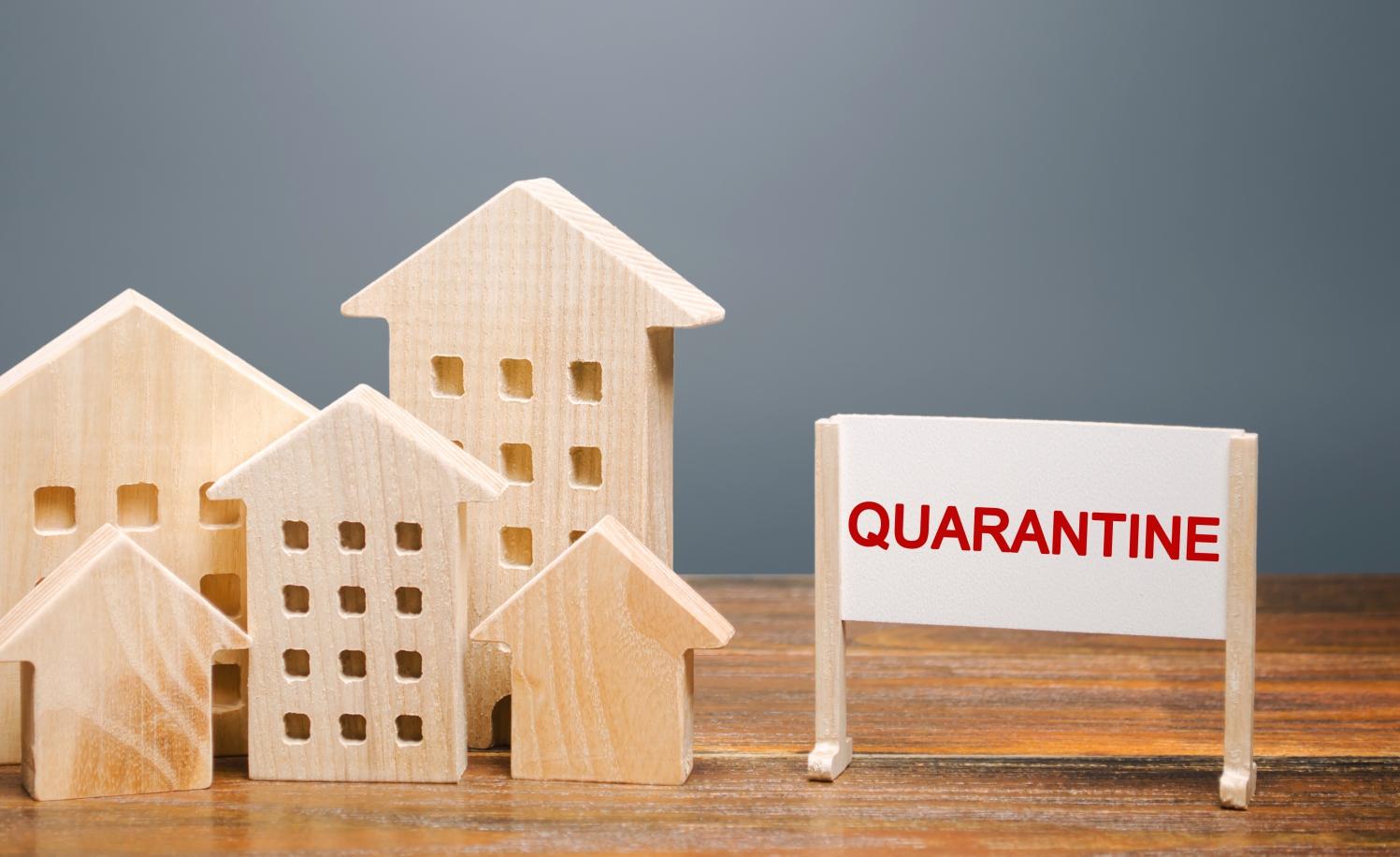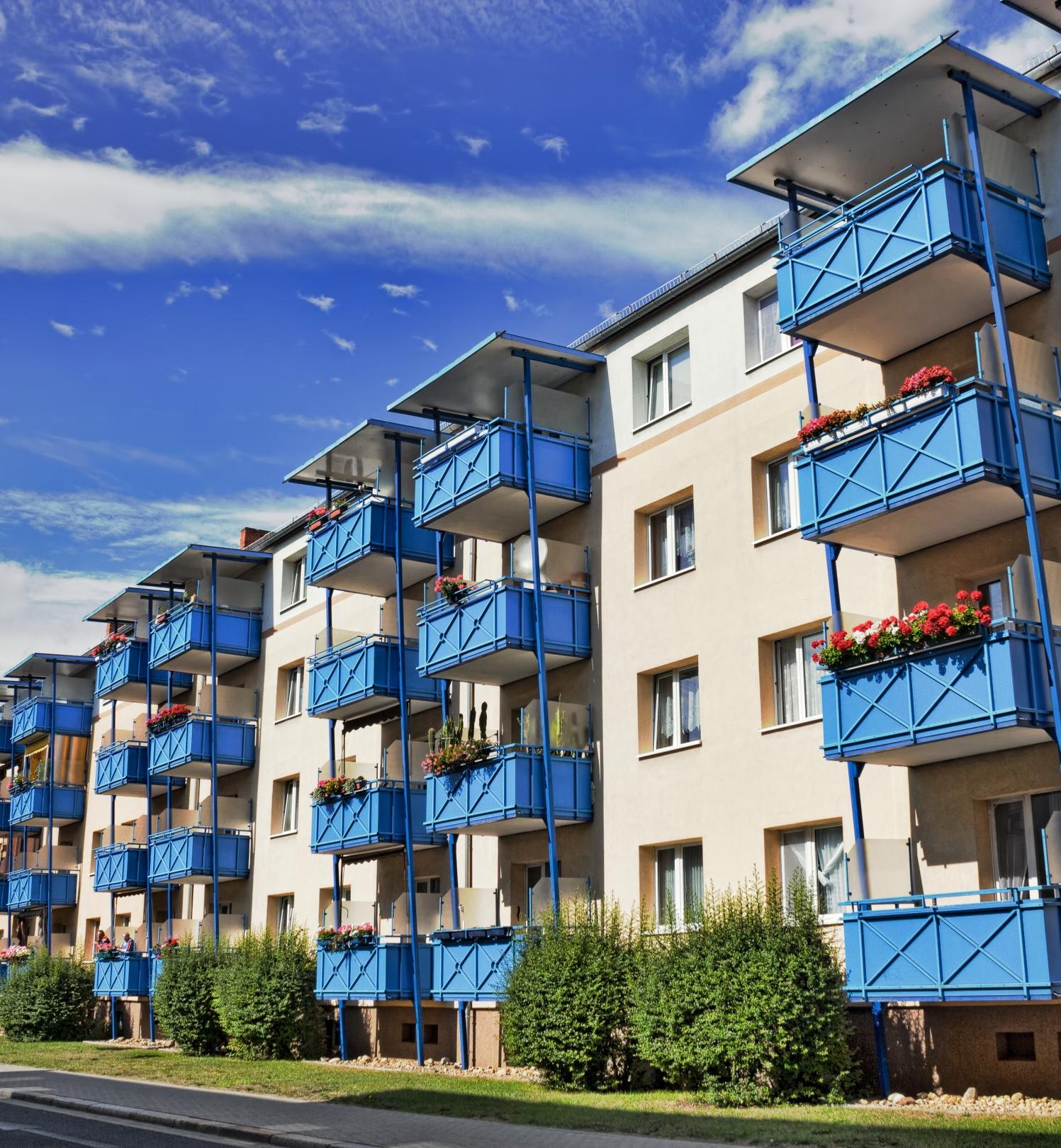Residentsline
in association with
Flats Insurance
MINI MONTHLY MAGAZINE
ISSUE ELEVEN... LATEST IN LEASEHOLD LIVING Tel: 0800 281 235
Email: magazine@residentsline.co.uk
MINI MONTHLY MAGAZINE Residentsline
in association with
Flats Insurance We are pleased to introduce the eleventh edition of our Mini Monthly Magazine.
CONTENTS
We have taken Flat Living's monthly feature and have prepared it as a hard copy for you to circulate to your team. This month's issue is all about the latest in leasehold living. For further copies please email us at magazine@residentsline.co.uk. To read a full copy of the latest Flat Living Magazine please visit www.flat-living.co.uk.
News from Residentsline
3
New Look Manage Your Block
4
Navigating Your Block during COVID
5
Getting Your Block Ready For Winter
6-7
How Will Recent Leasehold Reforms Help?
8-9
Storm Damage To Fences
10
How to Report an Accident
11
ABOUT RESIDENTSLINE At Residentsline, we always aim to deliver the best for our clients. Our leading policies include cover for Flats Insurance, Directors and Officers, Lift Inspection, Legal Expenses and Terrorism, ensuring comprehensive cover at the most competitive prices. Our additional services include our cloud-based portals: Manage Your Block and Property Management Portal, both of which allow clients to store and update important insurance information, as well as liaise with tenants and contractors.
To contribute in future issues please contact: Nicola@residentsline.co.uk
This month's edition of our Mini Magazine will be discussing a range of subjects, from getting prepared for winter and storm damage to reporting accidents and the challenges COVID presents. We hope you find it useful, and please feel free to contact us with any questions – we're always happy to help.
Visit www.residentsline.co.uk to get a Quote.
DISCLAIMER Published by Residentsline Limited Tel: 0800 281 235 Email: info@residentsline.co.uk Website: www.residentsline.co.uk
OUR BRANDS Residentsline Flats Insurance
www.residentsline.co.uk
Although every effort is made to ensure the accuracy of material published in Flat Living Magazine, the publisher cannot accept responsibility for the veracity of claims made by contributors or advertisers. Contributors must accept full responsibility for the material they submit for publication to ensure that they do not infringe copyright, intellectual property rights or trademarks. Copyright for all materials published in Flat Living Magazine remains with the publishers. Any business advice given is for guidance only and readers must consult relevant bodies before acting on any advice given in the magazine.
DIRECTORS AND OFFICERS L I A B IL I T Y .C O.UK
ManageYourBlock
www.directorsandofficersliability.co.uk
www.manageyourblock.co.uk
PropertyManagementPortal www.depositandrent.co.uk
www.londonflatsinsurance.co.uk
www.propertymanagementportal.co.uk
www.flatliving.co.uk
News from Residentsline
Residentsline Flats Insurance announces their latest partnership for 2020 with RSA. Belinda Thorpe, Managing Director of Residentsline comments that: “The link with RSA is another great enhancement to our team of insurance companies offering dedicated flats insurance policies. The team at Residentsline are looking forward to this amazing opportunity”. Steve Hedge, Director, RSA Delegated comments: “We are delighted to be partnering with Residentsline to offer insurance for the flats market. Residentsline bring a wealth of experience in understanding the unique risks of this sector, a commitment to putting their customers at the heart of what they do, and a passion for delivering great products that provide peace of mind. This partnership aligns with our core belief that customers are the priority and we look forward to working with the team on this exciting opportunity.”
MINI MAGAZINE
03
New Look Manage Your Block Manage Your Block 2020 Upgrade: Now bigger and better than ever. Manage Your Block is an innovative property portal designed with you in mind. We always want to make your experience simple and straightforward, which is why we've upgraded our system to be as userfriendly as possible, while still including more functions – so you have everything you need in one secure, easy-to-reach place. We know that handover periods between new directors can be a challenging time. Managing a block comes with an enormous amount of information, from insurance documents to residents' contact information as well as the entire documented history of the block. With Manage Your Block Portal, you'll never have to worry about finding relevant information again. We'll provide you with a safe, reliable place for you to store and amend your documentation, contact your residents and even to manage your service charges…plus much more! Who can use Manage Your Block? We've designed Manage Your Block portal for: • Residents' Management Companies • Right to Manage Companies • Residents Associations What can I do on Manage Your Block Portal? Manage Your Block Portal has a massive range of functions, all created to make your processes as streamlined and simple as possible.
04
MINI MAGAZINE
Save your everything: You'll have access to a trustworthy online space to store and manage your important details and documents. With Manage Your Block, you will always have instant access no matter where you are; it's everything you need at the click of a button. Share account information with other directors: You'll be provided with a username and password for your account which you can share with other directors, so that you're all always on the same page. This is especially handy during handover periods, as new directors will have all the information they need available to them at the touch of a button. Have access to a contact list: Store, view and easily change your contacts list, making sure your residents' information is always up to date. Send alerts: If your block suffers a power shortage, a broken lift or even crimerelated incidents in the local area, you'll be able to send an alert out to your residents through your Manage Your Block account. Not only does this make it simpler for you, it makes communication a lot quicker and easier between your residents. Keep contact info for your contractors: Maintain all your contractors' details in one place so you never lose a name or number. This is especially handy in case of an emergency. Keep a diary: Receive diary reminders to ensure you don't forget anything, such as health and safety risk assessments, gate inspections, fire drills and much more. Use the calendar: Our easy-to-use calendar function will help you to keep your block as organised as possible.
Manage your documentation: On Manage Your Block, you'll be able to store all the documentation relating to your block in one easy-to-reach place. This may include copy leases, financial records, fire evacuation procedures, along with other day-to-day procedural documents. Quotes: You'll be able to obtain quotes for maintenance at your block, and Manage Your Block will give you access to a UKwide repair network. You'll also be able to choose from a range of discounted specialist services such as legal assistance, accounts and buildings insurance valuations, and manage all quote requests from your Manage Your Block account. Notes: To make sure you don't forget anything, you can now write down important notes which will be saved securely on your account. What's new? This year, we've upgraded our property portal to include a function which will help you manage your service charges. You'll now be able to prepare, process and print out service charge demands for your block, meaning your in-house processes are guaranteed to be more streamlined and efficient. All invoices you produce will be saved and collated and saved safely in your account. For more information, or for a free, no-obligation demonstration of the Manage Your Block Portal, please contact a member of the team on 0333 577 9070.
Navigating Your Block During COVID
The events of this year have been unlike anything we've ever seen in the modern day. COVID-19 has affected us all in a massive variety of ways: work-related stress, economic turmoil and the pressure of managing new regulations has been incredibly difficult to adapt to – understandably, many people are still trying to find their feet. Social distancing has most definitely taken a toll. Remaining six feet away from those outside of your household group has entirely changed the way we do things; from the way we act in shops and workplaces to how we even must navigate an outside walk. Children across the nation have missed months of school, whilst many carers and NHS workers have had to move away from their loved ones in efforts to contain the spread. What are the regulations? The changes to our living environment have been among the most difficult regulations to uphold, especially for those in blocks of flats and living in close quarters to other residents. According to government health services, however, it is essential for everybody including those in flats - to abide by standard distancing rules as strictly as possible. These include: Social distancing by remaining at least 6 feet away from those you do not live with. Wearing cloth face coverings in public, especially when around people who are not from your household. This recommendation is especially important when other social distancing measures are difficult to follow (such as staying 6 feet apart).
If necessary, trying to find someone in the block who will check on you and ensure you are still getting basic essentials. What measures are in place for my block? Managing or living in a residential block during this time may be incredibly challenging for some. However, there are some ways that councils, Residents' Management Companies, Residents Associations and Right to Mange Companies are trying to make it easier for residents. Some examples include: Out-of-hours caretaking team: Some are ensuring that residential blocks of flats and apartments have an emergency cleaning service available out of hours. Concierge service: Some concierge services are ensuring that social distancing rules are abided by within blocks, as well as providing visitors to the property with hand sanitiser to minimise the risk of germs. Online support: Many Property Managers and Management Agents are offering online support for their residents in order to reduce the need for physical meetings. If you feel that more could be done to reduce risk in your building, don't be afraid to speak to your Property Manager, RMC director or fellow residents - everyone is on a learning curve and your concerns should be heard and resolved wherever possible. For more information, call the Residentsline team on 0800 281 235.
MINI MAGAZINE
05
Getting your block ready for winter How to handle frozen pipe emergencies A frozen pipe is an emergency, because this will cause it to burst causing thawed water to come pouring from the break. The following steps describe what you should do as soon as you discover a frozen pipe: 1. Turn off the water supply: Turn off the main stop tap. You should find this under the kitchen sink or where the service pipe enters your flat. Turn off the stopcock in your cold water tank if you have one, it's usually found in the attic or loft. 2. Beat the burst: Protect everything around the pipe that appears to be frozen to avoid damage if it bursts.
Open the loft trap door on cold days to let heat in. If you're away for a while, spending winter somewhere warmer perhaps, then ask a friend or relative to check on your home and make sure pipes haven't burst or frozen. Re-washer dripping taps because if they freeze, they'll block the pipe. This will also save up to a litre of water a day and your money if it's a hot tap. Make sure you know where your stop tap is and check regularly that you can turn it off easily in an emergency. It's handy to label it so you remember where it is in a panic, in very cold weather the heating will need to be on low or set to come on a couple of times a day, especially if you're going away. Most modern boilers have a frost protection thermostat, which turns on automatically if the temperature drops to a level that will cause your pipes to freeze.
Water Damage Insurance 3. Thawing out: Open the tap nearest to the part of the pipe you think is frozen so the water can flow through when it has melted. Thaw the ice in the pipe with a hot water bottle or hairdryer (taking care to keep it well away from any water), beginning from the tap end and working back toward the coldwater tank. Never use a heat gun or blow torch.
Preventing Burst Pipes – Winter Care If a burst pipe leaks and water comes gushing through the ceiling, it can wreak real damage on your flat and your contents. Even worse, burst pipes and leaks can be complicated to fix, repair work may also involve digging up your lawn, tarmac or paving. You can avoid this kind of damage by preventing burst pipes and leaks in the first place. As frozen pipes often burst, winter care is crucial. Try the following care tips: Insulate your loft and the sides of your water tanks. Insulate all your pipes.
06
MINI MAGAZINE
Have you ever looked at your insurance renewal documents to find your buildings premium has risen well beyond inflation? Sometimes the increase is due to the cost of your claims, Belinda Thorpe, Managing Director at Residentsline explains you CAN do something about it. Risk Management is the key to reducing claims and also to maintaining or reducing your insurance premium. Water damage accounts for around 75% of insurance claims in flats and apartments. It generally occurs following inadequate maintenance leading to corrosion of internal and external pipework, leakage of copper pipe or failure of plastic pipe joints, poor maintenance of seals around bath and shower areas, and accidental damage to hidden pipes.
How to reduce the risk of water damage:
Actions to take on discovery of a leak:
First, ensure all pipes and tanks exposed to winter temperatures are well insulated.
• Turn off the water supply stop cock. Make sure you know where it is.
Be aware of the equipment and installations in your block that are capable of causing a problem, for example, boilers, showers and washing machines. Guidance should be put in place for all residents to ensure regular checks are carried out as part of a planned preventative maintenance programme.
• If there is no shut off stop cock located inside the flat then it may have a shared water supply, so make sure you can get to the stop valve - this is normally located where the water enters the building, then tell your neighbours, as their water supply may be affected.
• Advise all leaseholders on what to do in the event of a leak, how to isolate their water supply or shut down central heating systems etc. • Ensure all leaseholders know where the stop cocks are located. These should be accessible and easily turned. Stop cocks can seize due to minimal usage. • Only use approved contractors when maintenance, repairs or replacement works are carried out. In your kitchen and bathroom: • Check appliance inlet and outlet fittings annually. • Clean door collar seals on washing machines and dishwashers, replacing any that are damaged or worn. • Annually check that the seal around your bath and/or shower is watertight. • Don't allow your bath to overflow! • Ensure plugs are not in the drain holes when not in use. • Replace washers in leaking taps and overflowing cisterns as soon as possible. • Ensure overflow pipes can release water effectively. With your central heating: • Carry out an annual check on central heating tanks and systems. • Ensure "shut off" valves are located in easily accessible places and that you know how to use them. • Check radiator valves regularly for leaks.
• If appropriate, turn off central heating and any other water heating systems. • Drain water pipes and tanks. Once the water heating systems have been shut down, turn on the taps to help drain the system fully of the remaining water to minimise damage. • Turn off the electrics if the escape of water is near your electrical wiring or appliances. If any live electrical equipment is wet, do not touch it – send for a qualified electrician. • Warn the occupiers of the flats directly below so that steps may be taken to reduce the likelihood of any damage to their properties. • If water starts to seep through the ceiling, place a container underneath. • Should the ceiling begin to bulge consider piercing the plaster with a wooden broom handle or similar implement to release the water and prevent the ceiling from collapsing. Care may need to be taken against disturbing any asbestos contained in Artex-covered ceilings. Notify your Insurer, Management Committee and/or Property Managing Agent and Maintenance Company, as appropriate, as soon as possible and find a reputable plumber to effect repairs. Your insurance company or Residents' Management Company may be able to provide you with details of preferred and competent contractors. Afterwards, always remember to make sure that your hot water system is completely refilled again without airlocks before switching on boilers, or switching on immersion heaters in tanks etc. Water damage can cost tens of thousands of pounds. Suitable measures such as those outlined above will help control your insurance costs. To review our policy against your current, simply call us on 0800 281 235.
• Prior to un-occupancy for more than a few days during the winter period leave central heating ON and at a low setting to prevent the pipes from freezing. In a block of flats a water leak or burst pipe can cause devastating damage to the structure of the building, electrical wiring, fixtures and fittings as well as damage to contents. Unfortunately, most water leaks do not inconvenience the flat owner with the leak, but usually the blameless occupier below. Water management devices such as Sure Stop and Leak Safe have become popular with flat and apartment owners - with the mere flick of a switch, water flow is restricted whilst you are out or away.
MINI MAGAZINE
07
How will recent Leasehold Reforms help? Residentsline discusses the recently proposed leasehold reforms and what this will mean for the property industry. Buying a leasehold property means that the leaseholder of the property does not actually buy ownership of the residence. Instead, they purchase the legal right to live in the property for a specified amount of time. Whilst houses tend to be sold on a freehold basis, there are approximately 4 million leasehold properties in the UK. Likewise, almost every flat or apartment in London is reported as being leasehold – an exceedingly high amount.
08
MINI MAGAZINE
Although leaseholders have the option to extend their leasehold and, in some cases, exercise their right to manage, this can often be a difficult and timeconsuming process. In all, freeholders retain a great deal of power in terms of the maintenance of the property and the ability to make important decisions regarding insurance, repairs and improvements. This often comes at the expense of the leaseholder through expensive ground rent and service charges. Sometimes, leaseholders are forced to pay exceedingly high costs but at the same time suffer poor building management from the freeholder, with very little power to do anything about it.
New Reforms As many of you may already be aware, this summer The Law Commission released a series of three reports proposing new reforms to the leasehold system in England and Wales. If these reforms are enacted, it will mean huge changes to the way the leasehold system operates, ultimately helping owners to “pave the way for a system where flats are sold with freehold title (as part of a commonhold)”. The ultimate aim of these reforms will be to revive commonhold – especially through newly-built blocks of flats.
This will dramatically improve the property industry in the long-term, slowly decreasing the number of leasehold contracts in favour of commonhold, meaning that tenants are able to manage their block together without the need of a landlord or a freeholder. Although commonhold is the definitive objective of the reforms, they are also proposing significant changes to the existing leasehold system to improve the situation for current leaseholders. Why are these reforms necessary? They are crucial to the improvement of the leasehold system and address a number of issues that existing leaseholders are facing. According to the Law Commission, the main issues include: • The number of leasehold properties across England and Wales are on the rise. This means that the issues which are already present are being exacerbated by growing numbers, making reforms more necessary than ever. • Leaseholders often must deal with sub-standard property management and, as reported by Professor Nick Hopkins (Law Commissioner for Property Law), many leaseholders are left unable to do anything as “the current law leaves them feeling like they don't truly own their home.”
• Escalating ground rents and exceedingly high service charges. • Disproportionate costs for leasehold extensions. • The power of freeholders over leaseholders and the resulting reduction in the quality of the leasehold experience. As things stand, there is a definite power disparity between leaseholders and freeholders. This has been discussed by the Housing Department of the Communities and Local Government Select Committee, who state that: "The balance of power in existing leases, legislation and public policy is too heavily weighted against leaseholders, and this must change.” It is clear that if anything is to be improved, the government and housing industry must work together to create a fairer system with an equal share of management power. So, what are the main aims of the reforms? The objectives of the proposed reforms look very promising, and tackle the main issues that leaseholders are facing today.
• A new enfranchisement regime will make it far easier and cheaper for leaseholders to extend their lease or buy the freehold. • It will be easier for leaseholders to exercise their 'Right To Manage' and take control of their block. Through participating in a Right to Manage company, leaseholders will have more say in the management of the property, including things such as insurance, services, maintenance and repairs. This will address the current disparity between the power of freeholders and leaseholders which is at the core of many issues. • As per the ultimate objective of these reforms, they will aim to ensure commonhold if the “preferred alternative” to leasehold as a way of owning homes. When can we expect to see changes? The reforms proposed this summer offer long-term solutions to all the issues listed above, but it may take several years before legislation is in place and we start to fully see the effects within the property industry. However, the main issues have been addressed and a plan has been proposed, so despite the current problems which leaseholders face, at least the future looks promising. For more information, call the Residentsline team on 0800 281 235.
MINI MAGAZINE
09
Storm Damage To Fences
With winter fast approaching, there are sure to be some storms on the way. Whilst you may not be likely to suffer storm damage, it's always advisable that you're prepared - especially considering the past storms the UK has suffered. Unfortunately, very few home buildings insurance policies will cover the cost of storm damage to fences, gates or hedges. However, most specialist flats insurance policies will. What classifies as a storm? The Financial Ombudsman defines a storm as something that "generally involves violent winds, usually accompanied by rain, hail or snow". Generally, a storm must have wind speeds of at least 47mph to count, and some increase that limit to 55mph. Past storms in the UK have reached well beyond this speed, with storms such as Ciara and Dennis bringing winds of up to 100 mph in some areas. The effect a storm of this magnitude could have on your property is severe, which is why you should do what you can to be prepared. This means keeping on top of your property's maintenance and making sure you have an adequate insurance policy in place to protect you financially in case something goes wrong. What to do in the event of storm damage? 1. Contact your home or commercial insurer as soon as possible. Most will have 24-hour emergency helplines to ensure customers get advice on what to do and arrange repairs as quickly as possible. 2. If possible, remove the fence panels to a safe and protected position to avoid them blowing away again. 3. If necessary, arrange temporary emergency repairs to stop any damage getting worse. Tell your insurer and keep any receipts, as this will form part of your claim. 4. Take photos of damaged items. 5. Take photos of the space where the panels have been blown from. 6. List, as far as possible, details of damaged items. For more information, please call the Residentsline team on 0800 281 235.
10
MINI MAGAZINE
How to Report an Accident taking place in your block of flats
RIDDOR Regulations (Reporting of Injuries, Diseases and Dangerous Occurrences) legally require dangerous occurrences, diseases and serious work-related accidents to be reported to them. This applies even in the case of a landlord or Residents' Management Company director appointing a self-employed contractor. Whilst the contractor will maintain some responsibility for their own safety measures, i.e. by bringing their own ladders or ensuring they are using equipment correctly, it still remains the landlord's responsibility to report any major incidents occurring during the time they are working within the block. These regulations also apply to any incidents involving visitors to the property. Major or fatal injuries should be reported to a national incident centre, whilst other accidents should be reported on the Health and Safety Executive (HSE) website at: hse.gov.uk/riddor. Whilst accidents are not especially common in blocks of flats with appropriate health and safety measures, there is always a serious risk. Likewise, in any place with such a large influx of people - visitors, employees and residents - the consequences can be severe. It is the job of local authorities and the (HSE’s) to ensure health and safety standards are maintained within blocks of flats. Upon inspecting a property and not being satisfied with the measures in place, the HSE can issue improvement notices which landlords must adhere to so that they mitigate the risks in their block. These improvement notices can challenge a number of things within the property, for example, clearing gutters and roof reparations. They may even recommend installing handrails to prevent residents from falling. Likewise, they can issue prohibition notices to stop a particular activity deemed too risky. It is a legal requirement to act on the notices issued by the HSE and failure to do so could result in prosecution. Residents' Management Companies, even if they delegate the management of health and safety to a Property Manager, can be prosecuted under criminal laws in case of any breach of regulations. For more information call the Residentsline team on 0800 281 235.
MINI MAGAZINE
11
Directors & Officers Liability Insurance
Lift Inspection and Insurance
Residentsline Flats Insurance
Call our Team on 0800 281 235 for a quote
Terrorism Insurance
Roads and Private Estates Insurance

